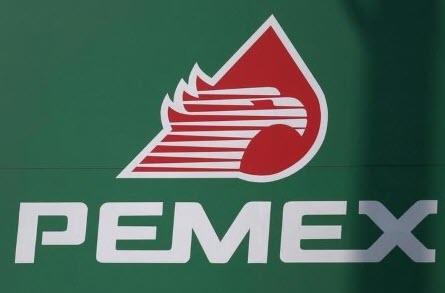Authored by Don Quijones via WolfStreet.com,
His lawyer suggests if the price is too high, he may be willing to take his friend, former president of Mexico, down with him…
Emilio Lozoya, a former chief executive of state oil company Petróleos Mexicanos (Pemex), was issued with an arrest warrant on Wednesday for financial irregularities, in particular his alleged dealings with scandal-plagued Brazilian construction firm Odebrecht.
Lozoya, formerly a one-time senior election campaign advisor to Mexico’s current president, Enrique Peña Nieto, is accused of receiving “tips” from Odebrecht worth some $10 million in exchange for his support in obtaining public work contracts. The money allegedly passed through shell companies in the British Virgin Islands before coming to rest in private bank accounts belonging to Lozoya in Switzerland, Liechtenstein, and Monaco.
Lozoya is one of countless public figures and business leaders in over a dozen Latin American and African countries, including Venezuela, Colombia, Argentina, Peru, Angola and Mozambique, to be accused of having his pockets lined by Brazil’s largest construction company. Some of those figures have even ended up in jail, including the former CEO of Odebrecht, Marcelo Odebrecht, and former Brazil president Luiz Inacio Lula da Silva, who is accused of accepting money from Odebrecht for his family’s vacation home.
The scandal has done extensive damage to Brazil’s state-owned oil behemoth Petrobras and has so far cost Odebrecht $2.6 billion in fines, $2.39 billion of which went to Brazil, $93 million to the U.S. and $116 million to Switzerland.
But in Mexico the investigation into Lozoya’s alleged acceptance of financial inducements seemed to be going nowhere — perhaps no surprise given the former attorney general, Raúl Cervantes Andrade, is a very close friend of President Peña Nieto, who is in turn a very close friend of Lozoya’s. But now that Mexico has a new government and a new attorney general that have pledged to combat corruption at Pemex, that friendship may be about to be seriously tested as Lozoya threatens to drag Peña Nieto with him through the dirt.
“Nothing in this country moved unless there were instructions from the president,” Lozoya’s lawyer, Javier Coello said on Wednesday, adding that the ministries of finance, economy and energy all had seats on the company’s board.
Lozoya was CEO of Pemex from 2012 to 2016, during which time the company underwent a dramatic deterioration in its already poor financial performance. By early 2016 the group’s total sales had plummeted by 21%, its annual operating losses had soared to an eight-decade high of almost $30 billion, and its total debt load had grown from $64 billion in 2012 to $106 billion now.
Obviously, this was not all one man’s fault. Between 2014 and mid-2016 the price of oil plummeted, crippling the finances of many oil producing economies. The Mexican peso lost almost a third of its value against the dollar during this period.
There are a host of other reasons for Pemex’s decline, including chronic mismanagement, lack of vision, severe budget cuts, shrinking oil reserves, lack of investment resulting in poor or obsolete infrastructure, negligence and the huge tax burdens the government imposed on it in the years preceding Mexico’s oil reforms, while lavishing foreign companies with massive fiscal incentives to invest in Mexican oil fields. But there’s an even bigger reason: corruption.
Simple, plain, white-collar corruption. Or what we like to call Petro-Plunder.
A perfect case in point was the decision by Pemex’s senior management to splash out $665 million on the repurchase of two fertilizer plants that Pemex had sold to private investors many years earlier, one of which was not even close to being operational — and in fact still isn’t — while the other one operated well below capacity. This week, Alonso Ancira, the owner of the Mexican steel company that sold the inoperative plant back to Pemex, was arrested in Spain for selling the firm at a price ten times higher than its real value.
Before the purchase of the fertilizer plants, international auditors warned Pemex’s board of their dire state, but the company went ahead with the purchase anyway. Such reckless lavishness was a constant feature of Lozoya’s tenure as CEO of Pemex. As Wilbur Matthews, founder of Texas-based Vaquero Global Investment, told Reuters, “The way they were conducting business in … [those] years did not make any sense at all.” Unless, of course, their prime, or sole, guiding principle was self-enrichment.
In the short space of just three and a half years the ranks of senior managers and administrators on the company’s payroll tripled. Despite Pemex’s growing losses those managers awarded themselves generous salary rises and lucrative perks, including three executive planes and a helicopter, and 911 company cars and SUVs.
The planes and helicopter, personally requested by Lozoya himself, were supposed to be deployed in the fight against the mass theft of oil by armies of amateur opportunists and some of Mexico’s most ruthless and organized drug gangs, which is now a multi-billion dollar business in Mexico; instead, they were reportedly used to shuttle Lozoya and his fellow executives to and from luxury resorts in Mexico and the United States, at public expense (since Pemex is state-owned).
Now, Lozayo, no longer protected by his connections to government, could finally pay a price for the white collar crimes he is alleged to have committed. And if his lawyer’s latest comments are any indication, if that price ends up being too high, he may be willing to take his friend, the former president of Mexico, down with him.
via ZeroHedge News http://bit.ly/2YYMCPA Tyler Durden
